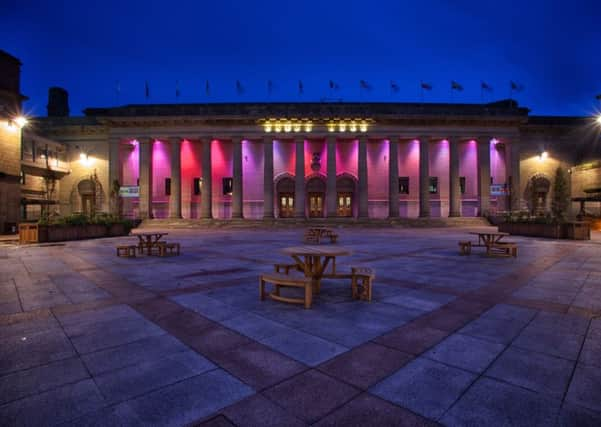Brian Ferguson: Scots Trad Music Awards highlight venue need


Down a corridor, inside the venue’s main hall, a vast behind-the-scenes operation had virtually dismantled the stage and lights for the event within an hour of the formal ceremony ending.
Long gone are the rather home-ays when the awards could be squeezed onto the stage of Edinburgh’s Queen’s Hall. Now it is about finding a venue big enough not only to satisfy the demand for tables for nominees, guests and sponsors, but also one capable of accommodating the needs of the broadcasting industry.
Advertisement
Hide AdAdvertisement
Hide AdMost of the awards ceremony, instigated by record company founder and promoter Simon Thoumire back in 2003, has been broadcast live on BBC Alba in recent years.
But this year the relationship between the Gaelic broadcaster MG Alba, which runs the channel, and Thoumire’s Hands Up For Trad organisation took a significant leap forward.
Not only were the awards broadcast live on BBC Radio Scotland, but they were also live-streamed around the world, securing priceless exposure for the acts with live performance slots.
All this probably had something to do with the fact the awards were the number two trending topic in Scotland on Saturday night – after The X Factor. It was telling too that the winner of one of the most coveted prize-winners at the awards was a one-off concert which benefited hugely from a TV broadcast and the sharing of footage on social media.
The legacy from Greg Lawson’s epic opening concert for Celtic Connections, a live recreation of Martyn Bennett’s ground-breaking final album Grit, has lived on in the remarkable footage captured by BBC Scotland, which ended up being nominated for a Scottish Bafta.
I had a couple of fascinating conversations last week with Paul Bush, head of the EventScotland agency for the last decade.
Much of these focused on the forthcoming 70th anniversary of the Edinburgh Festival in 2017 and the threats and opportunities that may be looming. I was intrigued by his warning – illustrated with images of empty venues – about the impact of new technology, lucrative broadcasting deals and the growing trend for people to watch live events on television or even on their mobile phones.
In an age where cinema broadcasts of live theatre and opera are drawing huge crowds, it is bewildering how little footage makes it out of Edinburgh.
Advertisement
Hide AdAdvertisement
Hide AdWhile the BBC deserves credit for the number of programmes it creates at its pop-up site in Edinburgh, not much makes it onto the nation’s TV screens or is streamed live.
But a major change is already in the offing for one of the main Fringe venues, the Assembly Rooms, which will be turned into the home of a new “digital festival” for the next few years.
The dilemma for the Edinburgh festivals in the run-up to 2017 may be whether to either embrace new technology, or offer their programmes as up-close-and-personal antidote to the world of smartphones, streaming, tweets and tablets.
A few clues to the future were offered at that same conference by Joanna Baker, the Edinburgh International Festival’s managing director.
She sees the apparent threats and challenges over new technology as major opportunities for the city’s festivals - and is convinced the digital world can be “harnessed” to turn more people on the magic of the live experience. Exactly how that will manifest itself in 2017 as Edinburgh hosts the mother of all parties promises to be nothing less than fascinating.